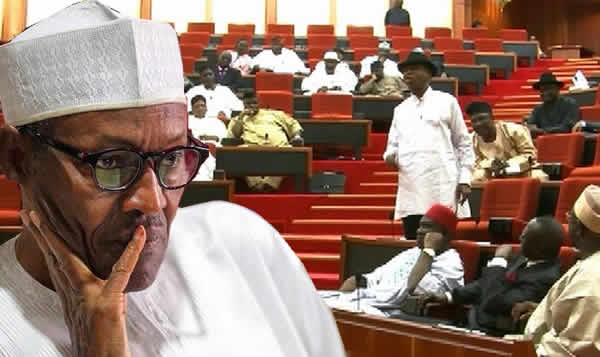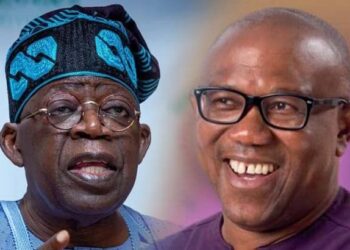 Issues regarding the non-implementation of Zonal Intervention projects, otherwise known as constituency projects in the 2017 appropriation featured prominently Tuesday as the House of Representatives commenced debate on the general principles of the 2018 Appropriation Bill.
Issues regarding the non-implementation of Zonal Intervention projects, otherwise known as constituency projects in the 2017 appropriation featured prominently Tuesday as the House of Representatives commenced debate on the general principles of the 2018 Appropriation Bill.
Leading the debate was the House Leader, Femi Gbajabiamila (APC, Lagos), who appealed to his colleagues not to lose sight of the lofty ideas behind the bill which seeks to consolidate on gains already attained by government, even as some members raise critical observations.
Gbajabiamila’s entreaty came on the heels of objections raised by some opposition lawmakers who demanded for suspension of the debate until work on the Medium Term Expenditure Framework (MTEF) and Fiscal Strategy Paper (FSP), is concluded and passed.
Even those of the ruling All Progressives Congress (APC), where not left out as Hon. Abubakar Adamu Chika (APC, Niger), also raised a constitutional point of order and the House Standing Rules challenging the legality of the debate in the absence of MTEF.
Deputy Speaker, Lasun Yusuff had to intervene, assuring Chika and other members that the debate as commenced would only a stop-gap measure that will not necessary lead to the passage of the Bill through second reading until the MTEF is dealt with.
Lasun said commencing debate on the budget without passing the MTEF does not amount to passing the budget itself, as question on the bill can be deferred to a later legislative day until the MTEF is passed.
Responding, House Leader, Gbajabiamila admitted the constitutional and legislative correctness of Hon. Chika, saying that his colleague was “absolutely correct because we cannot be seen to violate our own law which we passed in this House”.
“As it is the practice, the MTEF cannot be left hanging for us to commence debate on the budget, but we can in line with your ruling seeking the indulgence of the House to allow the debate also urge our colleagues to show understanding, that this would enable us reduce the work load on the document”, Gbajabiamila appealed.
He urged his colleagues to look beyond the shortcomings observed and focus on the impending benefits of the budget to Nigerians.
“The size of this budget was made so as a deliberate attempt to take the nation’s economy out of recession and grow it to a sustainable level that upholds the minimum standard of living for Nigerians.
“The projected revenue for 2018 is N6.6trillion with N4.2trillion of it set to be realised from the sale of oil and the rest to come from non oil revenue and N1.6trillion is to be borrowed.
“The capital aspect of this budget is purely to stimulate growth in all sectors of the economy, ranging from agriculture, aviation, rail and road transportation as well as solid minerals exploration.
“So I put the ball in the court of my colleagues with a view to giving their support to the passage of this bill for second reading, and I must said that I expect to hear dissenting views on this, because no budget in the world is perfect.
“But let’s not lose sight of the bigger picture of this budget with regards to issues of job creation, anti corruption war, insecurity and provision of infrastructure that would serve the best interest of our citizens”, Gbajabiamila said.
However, in his contribution to the debate, Hon. Denis Agbo (PDP, Enugu) raised concerns over non implementation of zonal intervention (Constituency) projects by the executive in the 2017 budget.
He said it is those projects that have directing impact on the lives of the over 170million Nigerians in the nooks and crannies of the federation, adding that out of the N4.2trillion allocated to capital projects, only a N100billion meant for federal legislators to bring federal presence to their people shouldn’t be a difficult amount to release.
He said: “Of the entire capital allocation, zonal intervention project is just about 3.4percent of capital expenditure and I see no reason why government will not implement it”.
Hon. Mohammed Tahir Monguno (APC, Borno) said there’s need for the House as a responsible arm of the Legislature to take the bull by the horn in demanding adequate implementation of budgets.











